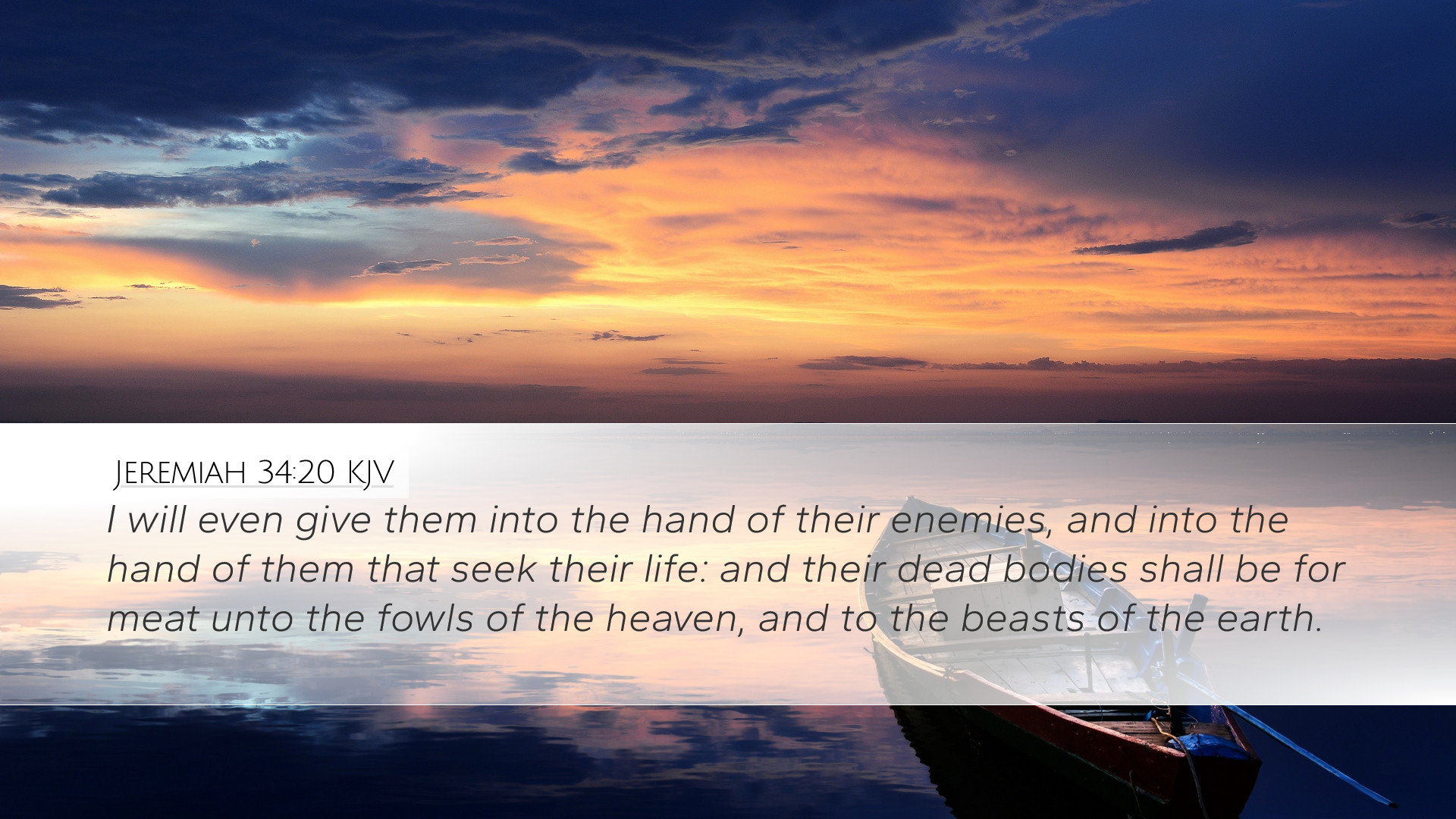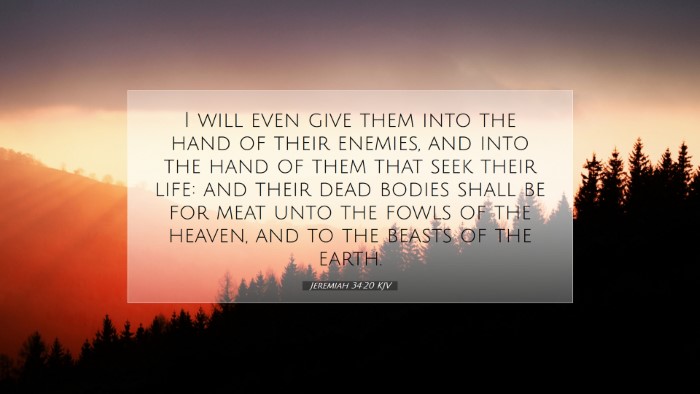Commentary on Jeremiah 34:20
Jeremiah 34:20: "I will give them into the hand of their enemies, and into the hand of them that seek their life: and their dead bodies shall be for meat unto the fowls of the heaven, and to the beasts of the earth."
Contextual Overview
This verse occurs during a tumultuous time in Israel's history, reflecting God's judgment against the people of Judah due to their persistent disobedience and disregard for His commandments. The socio-political backdrop is the Babylonian siege, highlighting the profound implications of the covenant relationship between God and His people.
Exegetical Insights
In Jeremiah 34:20, we find a stark declaration of judgment. The Lord, through the prophet Jeremiah, announces that the people will be given into the hands of their enemies. This is significant, as it not only signals physical defeat but also spiritual and moral degradation.
Matthew Henry's Commentary
Henry emphasizes the severity of the punishment described in this verse. He notes that God has the sovereign power to deliver judgment, and once a nation, or an individual, turns away from divine law, they become vulnerable to various forms of destruction. He further implies that the very bodies of the disobedient will become food for the birds and beasts, expressing utter disgrace and the complete reversal of God's protective care.
Albert Barnes' Notes
Barnes interprets this proclamation as a reflection of the covenant's curses, reminding readers of Deuteronomy 28, where such consequences are spelled out for disobedience. The phrase "their dead bodies shall be for meat" serves to illustrate the depth of calamity that will befall the people. It underscores that those who reject God's guidance will ultimately face destruction, with no one left to bury them, signaling complete abandonment.
Adam Clarke's Commentary
Clarke highlights the imagery used in this verse, noting its vivid and gruesome portrayal of judgment. He suggests that the mention of "the fowls of the heaven" and "the beasts of the earth" serves as a metaphor for utter hopelessness and despair. Furthermore, Clarke mentions the historical context of the Babylonian conquest, illustrating that Jeremiah’s prophecies were a foreshadowing of the impending doom that indeed was realized when the Babylonian armies overran Jerusalem.
Theological Implications
This verse speaks profoundly to the themes of divine judgment and human accountability. The prophetic utterance of judgment serves as both a warning and a wake-up call to those who turn away from God. In a theological context, it emphasizes God's holiness and justice, as well as the grave consequences of sin. For pastors and theologians, this verse serves as a crucial reminder of the seriousness of God’s laws and the dire consequences of turning from them.
Practical Applications
- Awareness of Consequences: Just as the people of Judah faced the consequences of their rebellion, modern believers must recognize sin's potential fallout in their lives.
- Call to Repentance: This verse should trigger calls for personal and corporate repentance among church leaders and congregations alike.
- Understanding God’s Justice: Acknowledging that God's justice may often be hard but ultimately aims for restoration can guide pastoral teachings.
- Emphasis on Protection and Provision: Understanding the relational dynamics of God’s promises, blessings, and protections can enhance preaching about covenant faithfulness.
Concluding Thoughts
The proclamation in Jeremiah 34:20 serves as a somber reminder of the gravity of disobedience towards God. The commentaries suggest a multifaceted understanding, encompassing historical, theological, and practical insights. For modern readers, this verse encourages a deep reflection on the character of God, urging both understanding of His justice and motivation towards deeper faithfulness.


